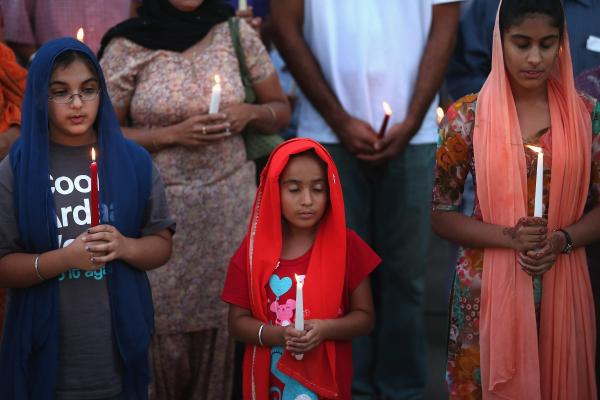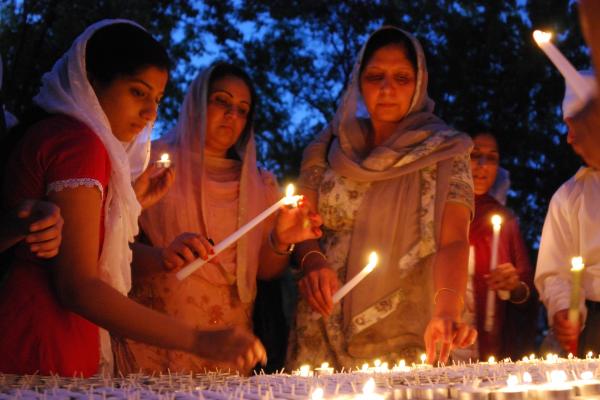Peter Jackson releases a second trailer for The Hobbit: An Unexpected Journey --- feminist Ryan Gosling to become coffee table book --- animals forming their own bands --- Conan O'Brien's "Clueless Gamer" --- Sesame Street minimalist art --- Stephen Colbert's music performance festival Setphest Colbchella. See these and more in today's Links of Awesomeness...
This is the third and final installment of my little series on Harry Emerson Fosdick, his sermons about Modernism and Science, and how these century-old sermons remind us that our present conversations about the same are anything but new. They may be necessary, but they aren't new. You can read my first post, “I Love How History Repeats Itself,” and my second post, “Science, Faith, and An Ongoing Conversation.”
I want to continue to focus on the same two sermons, "Shall the Fundamentalists Win?" and "The Church Must Go Beyond Modernism," and finish up a line of thought about American Christian Fundamentalism and interlace a third and final sermon entitled, “The Greatness of God” in which Fosdick outlines some of his own understandings of atheism, science, and religion. Typical of Fosdick, there is a tome hidden in between the lines of that sermon. Nevertheless, I'll try to share some of it with you.
What does Fosdick say is the trouble with Modernism? In “The Church Must Go Beyond Modernism,” he lists a few problems. Here's a list:
- “... it is primarily an adaptation, an adjustment, an accommodation of Christian faith to contemporary scientific thinking.”
- for this reason it tends “toward shallowness and transiency” and thus cannot adequately represent the Eternal;
- “Unless the church can go deeper and reach higher than that it will fail indeed.”
- “... excessively preoccupied with intellectualism” eschewing the heart and thus missing much of Christian spirituality
- excessive sentimentality, which means the eternal progress of the human character and the eradication of evil and the loss of moral judgment, scientific progress being equated with human moral progress
- “... modernism has even watered down and thinned out the central message and distinctive truth of religion, the reality of God.”
First, there were the cryptic news bulletins on TV. There had been a shooting at a Sikh temple in a Milwaukee suburb called Oak Creek. Then the details began to emerge. Six people were dead, others critically wounded, including a police officer. The shooter, who had a long history with the white power movement, was shot dead by another police officer, bringing the toll to seven.
And all around Wisconsin, people watched in horror as we learned of yet another mass murder, this one in our backyard, this one shattering the tranquility of a Sunday morning worship service.
There are not a lot of Sikhs in Wisconsin – about 3,000 in the southeastern part of the state, perhaps 250 or so in the Madison area where I live. Yet people everywhere shared the horror and the sadness of that moment.
In the Milwaukee area, a group called the Light Brigade — which had held up illuminated letters with political slogans during the effort to recall Gov. Scott Walker earlier this year — stood in Cathedral Square with a simple, powerful message in lights: “Wisconsin Weeps.”
Imagine the terror.
You are in a temple, a safe, sacred place, preparing for a morning service. In the kitchen, you are busy cooking food for lunch, while others read scriptures and recite prayers. Friends begin to gather for the soon-to-start service.
At the front door, you smile at the next man who enters. He does not smile back. Instead, he greets you with hateful stare and bullets from his gun.
Such was the scene Sunday at a Sikh gurudwara in Oak Creek, Wis., just south of Milwaukee, where a gunman, Wade Michael Page, killed six and critically injured three others before being shot down by law enforcement agents.
As Page began his shooting spree, terrified worshippers sought shelter in bathrooms and prayer rooms. Rumors of a hostage situation surfaced, and those trapped inside asked loved ones outside not to text or call their cell phones, for fear that the phone ring might give away their hiding place.
The first police officer to arrive on the scene stopped to tend to a victim outside the gurudwara. He looked up to find the shooter pointing his gun directly at him, and then took several bullets to his upper body. He waved the next set of officers into the temple, encouraging them to help others even as he bled.
That magnanimity is a common theme among the stories of victims and survivors of the Wisconsin shootings. Amidst terror and confusion, Sikhs offered food and water to the growing crowd of police and news reporters outside the gurudwara as part of langar — the Sikh practice of feeding all visitors to the house of worship.
Holy God, give us peace in our hearts so that we may further pursue peace in the world. Amen.
"But Ruth said, 'Do not press me to leave you or to turn back from following you! Where you go, I will go; where you lodge, I will lodge; your people shall be my people, and your God my God. Where you die, I will die—there will I be buried. May the Lord do thus and so to me, and more as well, if even death parts me from you!'" - Ruth 1:16-17
"Let us not seek to satisfy our thirst for freedom by drinking from the cup of bitterness and hatred." - Martin Luther King, Jr.
Fred Krupp writes in The Wall Street Journal:
One scorching summer doesn't confirm that climate change is real any more than a white Christmas proves it's a hoax. What matters is the trend—a decades-long march toward hotter and wilder weather. But with more than 26,000 heat records broken in the last 12 months and pervasive drought turning nearly half of all U.S. counties into federal disaster areas, many data-driven climate skeptics are reassessing the issue.
Respected Republican leaders like Govs. John Kasich of Ohio and Chris Christie of New Jersey have spoken out about the reality of climate change. Rupert Murdoch's recent tweet—"Climate change very slow but real. So far all cures worse than disease."—may reflect an emerging conservative view. Even Exxon Mobil CEO Rex Tillerson, during public comments in June, conceded the reality of climate change while offering assurances that "there will be an engineering solution" and "we'll adapt."
Learn more here
Souad Mekhennet writes for The New York Times on the growing hostility toward religious minorities as election season approaches in the United States:
Muslims in Western countries say they have gotten used to the fact that as elections get closer, politicians pump up the volume of accusations against them, whether they are Sunni, Shiite or of another sect. In some European nations, it was the debate over women wearing the veil that set off the attacks. Now in the United States, where pivotal elections are looming, accusations against Muslims have reached a new level. It seems to some that the days of McCarthyism are back.
Read more here
In an op-ed for Politico, two Representatives highlight the recent cuts to food assistance programs, and the damaging effects they will have on the state of the nation:
The House gutted $16.5 billion from food stamps — our nation’s most important anti-hunger program, which gives low-income families modest aid during tough times. These cuts mean up to three million low-income Americans – largely families with children – can’t buy food.
These cuts in the Supplemental Nutrition Assistance Program also eliminate free school meals for 280,000 children. School breakfast or lunch is too often the only complete meal a child can eat all day. We expect our students to compete in a global economy. We expect them to come to school ready to learn — but we conveniently ignore the facts.
Poor nutrition negatively affects students’ academic achievement. Children who are hungry often miss more days at school and, when they do attend, they may have more trouble concentrating. They often have lower test scores.
Right now, 46 million Americans live in poverty, and more than 32 million adults and 16 million children live in food-insecure households. These families struggle every day to make ends meet — particularly as food prices continue to rise. As more and more families are getting by on less and less, food stamps help make groceries more affordable, so parents have more money to pay the rent, gas up their car and meet their children’s other basic needs. Food stamps kept 4 million Americans over the poverty line in 2010, including 2 million children, and lifted another 1.3 million kids above 50 percent of the poverty line. More than any other benefit program.
Read the full article here


